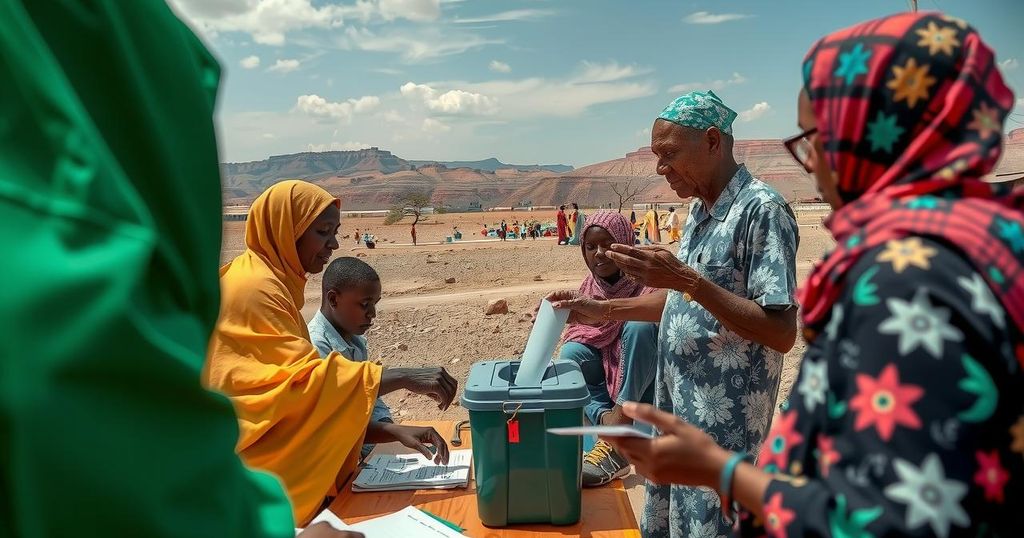Voting has begun in Somaliland for the presidential election after a two-year delay, with over one million voters expected at polling stations. Incumbent President Muse Bihi Abdi is seeking re-election against key opponents advocating for different reforms. The election reflects Somaliland’s ongoing struggles for international recognition amid regional political tensions.
On November 13, 2024, voting commenced in Hargeisa, the capital of Somaliland, for a pivotal presidential election that had been postponed for two years amid escalating political tensions within the Horn of Africa. Over one million registered voters were expected to participate at more than 2,000 polling locations, with 28 international observers monitoring the electoral process. Voters expressed their desire for economic improvement and job creation as local priorities. Incumbent President Muse Bihi Abdi of the ruling Kulmiye Party seeks re-election after a seven-year tenure focused on attaining international recognition for Somaliland. Opponent Abdirahman Mohamed Abdullahi, representing the Waddani Party, campaigned on the tenets of democratic reforms and social harmony, while Faisal Ali Warabe from the Justice and Welfare Party advocated for a government of national unity. Despite declaring independence from Somalia in 1991 amid civil strife, Somaliland has established a structured government and economy while lacking global recognition. Somaliland has maintained stability in contrast to ongoing unrest in Somalia, although recent economic difficulties prompted the government to delay the elections in 2022. Tensions between Somaliland and Somalia have escalated following Somaliland’s recent agreement with Ethiopia, which involves access to the Indian Ocean in return for international recognition. This election marks an important phase in Somaliland’s political evolution and reflects its unique status in the region.
Somaliland declared independence from Somalia in 1991, establishing its own governance, economic systems, and security infrastructures despite lacking global recognition. The region has maintained a relative level of stability compared to Somalia, which continues to grapple with insecurity and political strife. Somaliland’s government announced a delay in the presidential elections due to pressing economic challenges, raising concerns regarding the electoral stability and consistency within the region, especially with the new dynamics involving Ethiopia.
The ongoing presidential election in Somaliland marks a crucial moment for the region as it seeks to solidify its political foundation and aspirations for international recognition. With an atmosphere of political tension and economic challenges, the election is significant for both the local populace’s priorities and the broader geopolitical landscape in the Horn of Africa. The outcome will be closely watched as it could reshape Somaliland’s trajectory moving forward.
Original Source: apnews.com







